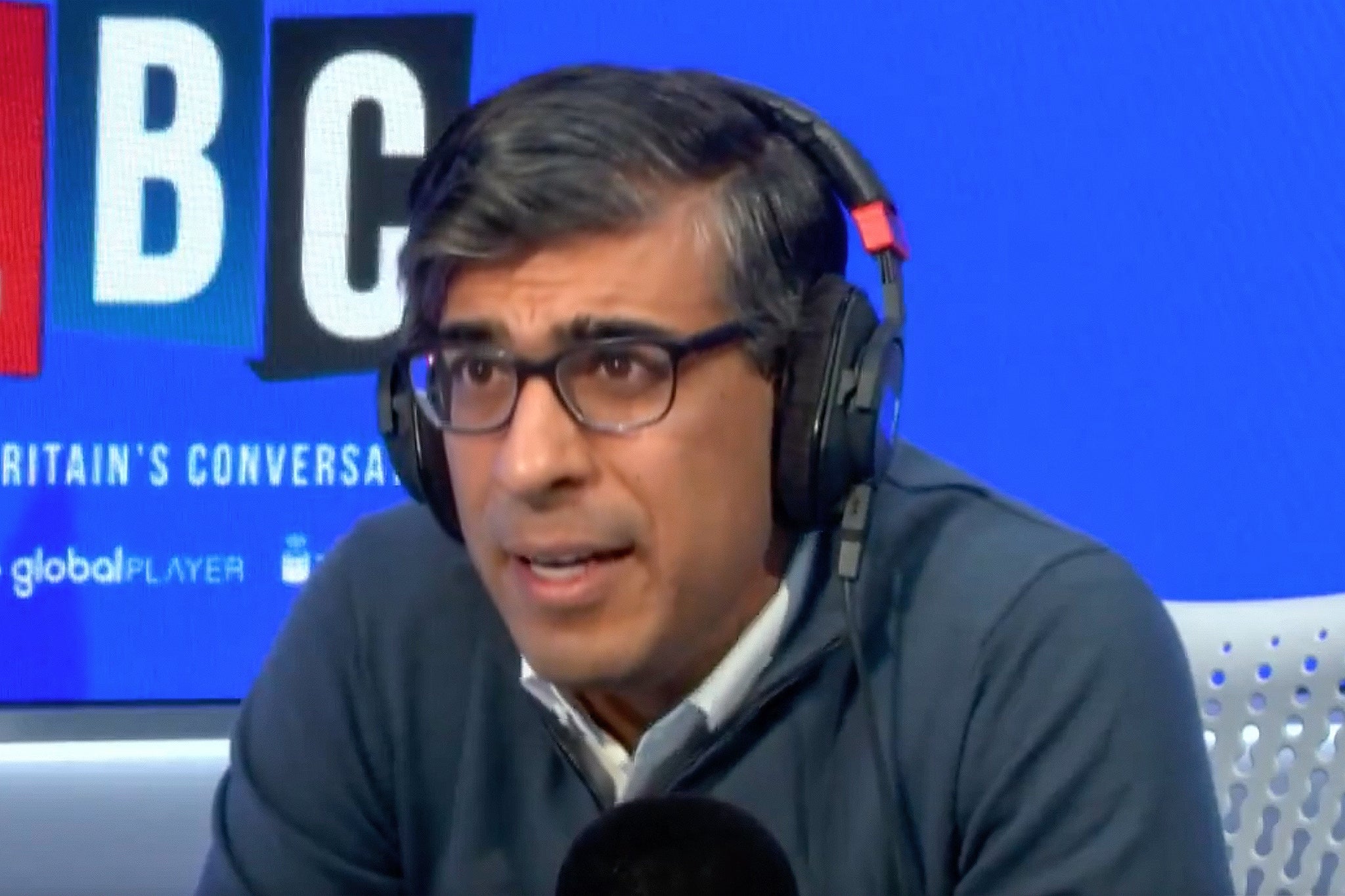‘Radio Rishi’ was a masterclass in how not to do an election phone-in
Tetchy towards callers and unconvincing in his responses, the prime minister gave the performance of a politician resigned to defeat, writes John Rentoul


After four bruising weeks of a six-week election campaign, it seemed to be dawning on the prime minister during this morning’s hour-long radio phone-in that a lot of people dislike him. He tried to sound upbeat and sympathetic to the complaints about how hard life is in Tory Britain – but there was an air of resignation about several of his answers.
“I’m sorry you feel like that,” he said more than once to callers who were cross about his record. “I don’t suppose I will persuade you otherwise.”
Towards the end of the phone-in – presented by Nick Ferrari on LBC – Rishi Sunak said: “We are almost done with this interview and we haven’t talked about migration or security.” Ferrari immediately put Rachel from Bexley through, who wanted to complain that the Rwanda deportation scheme was a waste of money. Sunak wasn’t able to convince her, either.
With time running out the prime minister took a call from Sophie, who was furious about the growth in the number of food banks. His answer was that he wanted to encourage the creation of good jobs. Ferrari made a sceptical noise. Sunak demanded: “You’re sighing – but what do you expect me to say?”
He had, by then, tried several different ways of sounding sympathetic, some of which were less successful than others. His attempt to identify with the joy of home ownership, remembering when he got his first flat, went down badly with callers such as Sophie who told him twice that he was “richer than the King”.
Sunak chafed at questions from callers about “polls and process”, usually with Ferrari following up to press him. He was asked by one caller whether he would stay on as an MP if he was kicked out of No 10. “Of course I’ll do that.”
He was asked by another why he thought he could win a general election “when you couldn’t even win in your own party”. To which his answer was that he was proved right. “I was right in that Liz Truss election and I am right about the economy now.”
But the most revealing exchange was with Theresa from Ladbroke Grove, who said that the NHS had “gone from five stars to one star in 10 to 12 years”, and that she was afraid to go into hospital for her treatment for breast cancer. “If I had known how bad it was going to be, I would have gone private,” she said.
Sunak expressed sympathy, and even on this occasion managed to sound sincere when he said to her: “Stick on the line and we can get your details”, and promised to follow up her case.
But when Ferrari followed up by asking about the front-page story in The Daily Telegraph this morning – about cancer care in Britain being 20 years behind the rest of Europe – the prime minister simply played dumb: “I haven’t seen that.”
Ferrari didn’t let go. Surely someone had brought such an important study, from Macmillan Cancer Support, to his attention? “I haven’t seen the details,” Sunak clarified, and started to recite his standard briefing on cancer care.
Still Ferrari persisted, wanting to know how he responded to this specific report. “It makes me want to work harder to fix it,” Sunak said, reinforcing the impression of him as a bright, well-meaning technocrat whose response to something going wrong is to work harder rather than to solve the underlying problem.
There is the prime minister’s tragedy. Nothing to do with “polls and process”. It is a matter of a public service that was working well 14 years ago and now is not. Sunak had promised at the start of last year to get NHS waiting lists down, and they have continued to go up. He keeps trying to blame NHS staff for going on strike, but most voters think it is his job to settle the strikes and turn the NHS around.
A later caller was Olivia, a striking junior doctor in Newcastle, who pointed out that he hadn’t even definitively settled the dispute with the nurses. It was at this point that Sunak complained that he hadn’t been allowed to talk about migration – another subject on which the overwhelming majority of the voters think he has failed.
A top politician needs two things to do a successful phone-in. One, convincing sympathy for voters who feel their lives are not going well. “I feel your pain,” Bill Clinton once said in a televised town hall meeting, showing other leaders how it is done. The other is a convincing plan for making people’s lives better. Rishi Sunak failed on both counts.






Join our commenting forum
Join thought-provoking conversations, follow other Independent readers and see their replies
Comments